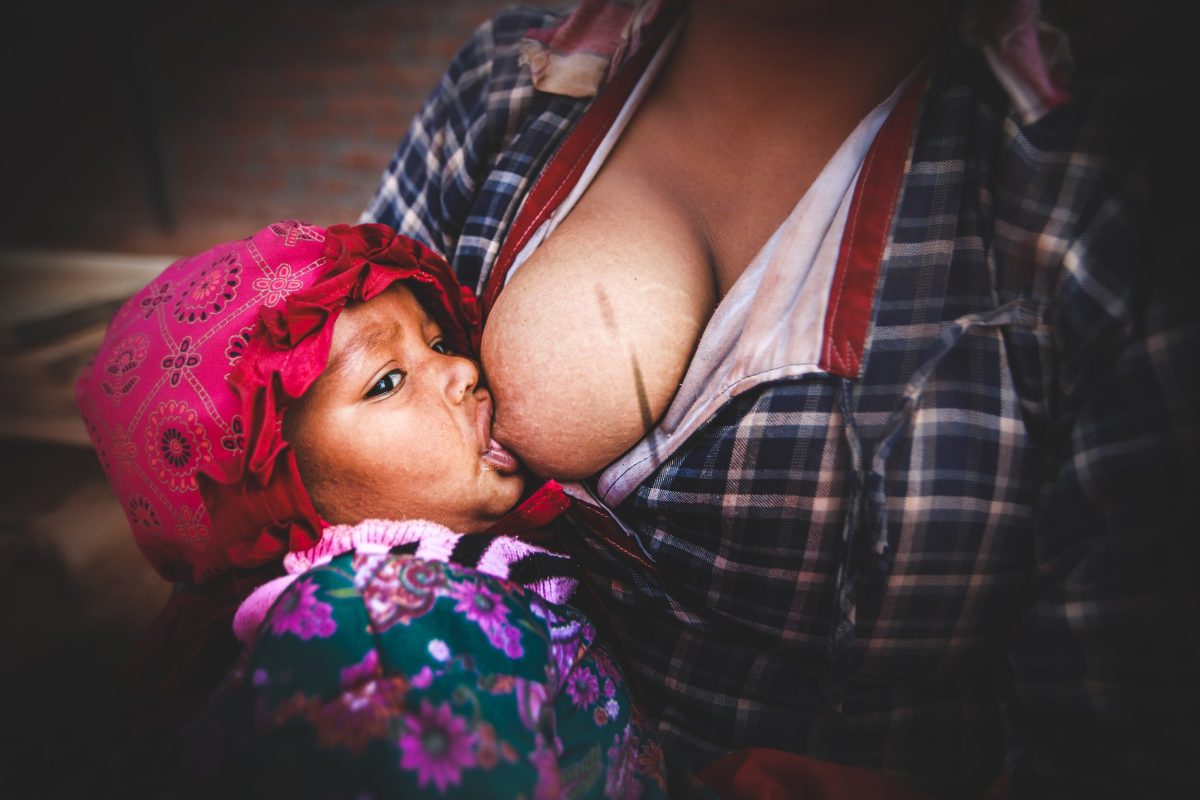
If you’re a new mother or expectant mother-to-be, you’ve undoubtedly heard that “breast is best” and that breastfed babies have better health outcomes. You’ve probably heard that breastfed babies have fewer respiratory issues, including colds, allergies and asthma; fewer tummy issues; and stronger immunity. This is enough reason for many women to choose to breastfeed – and for many women to beat themselves up when breastfeeding (or breast milk feeding) doesn’t work out.
What we know about breastfeeding is that when it works well – when women don’t have pain and have enough milk – breastfeeding is protective of women’s moods. The hormones of breastfeeding can help women feel more relaxed and can reduce cortisol, a stress hormone. Women can feel a sense of empowerment.
And the reverse is true: when mothers feel depressed, everything feels harder – including breastfeeding. Pain, sore or cracked nipples and difficulty feeding, not to mention poor sleep, can exacerbate anxiety and depression. Throw in past trauma and… well, you might get where this is going. Hard stuff to work with.
As a lactation consultant, I try to support breastfeeding and a woman’s mood, while thinking about promoting practices to do so. What does this look like?
-
Spend time skin to skin with your baby. Not just around feeding (and without that pressure to feed). Just being skin to skin can help release some feel-good hormones for women and for their babies. It can help you become more in-tune with your baby.
-
Be around people with whom you feel safe and with whom you have a positive relationship.
-
Rest, rest, rest. I know Instagram is waiting for those pics, but you can post later. The mess can wait too.
-
Eat high-nutrient food as best as you can. This means high quality protein, good fats, veggies, fruits. Your friends and family can make smoothies, easily grabbed finger foods like hard-boiled eggs or berries, and a container of oatmeal to keep in your fridge.
-
Remember to hydrate. Keep a water bottle handy. Plain water, coconut water, and electrolytes are all great. But you don’t need to over-hydrate! Just make sure your pee is light in color.
-
Put your visitors to work. Before they leave, ask them to put up a load of laundry, unload and fold the laundry, load or empty the dishwasher, or vacuum.
-
Line up playdates for older kiddos. Family members can also help a lot here.
-
Don’t put up with painful feeds. Breastfeeding should feel like a tugging sensation but should not feel painful. Ditto for chewed up nipples – ouch! These things shouldn’t be happening and are not normal, even if they are common.
-
Your back, shoulders, and neck also should not be hurting. Really! Good positioning can make a world of difference.
-
Don’t continue endless “triple feeding” (pump, bottle feed, breastfeed). This should be a means to an end, not an end in itself. There should be a reason for triple feeding, along with an understanding of what it will take to end it. Triple feeding is exhausting and not sustainable for a long period of time.
-
Seek out emotional support. Birth and breastfeeding can be very triggering for women with any past history of trauma, anxiety or depression. Even without this history, if the birth occurred in a way that you weren’t prepared for, or you didn’t feel you were part of the decision-making process, you might feel grief, anger, loss, or sadness. Give yourself permission to have these feelings, even if your baby is fine. Same with breastfeeding. There are lots of mental health professionals who can help you process these very natural feelings.
-
If you don’t feel like your lactation support folks are listening to you, your needs, your goals, and what’s working and what’s not, find some new support people. Know that lactation support professionals have a variety of credentials and qualifications, as well as perspectives and tools in the toolbox.
-
Acupuncture is great for balancing hormones, physical pain after birth, and breast support (milk flow and mastitis) during breastfeeding. ☺
If you’ve tried it all and breastfeeding hasn’t worked out, or if you know yourself and know it’s not the right thing for you, try your best to let yourself off the hook. I know this is hard in our uber-overachieving Boulder culture. But it won’t do you or your baby any good to compare yourself to your vision of how it would be for you, or to compare yourself to what others are doing. Take a deep breath and try to let it go. Mindfulness practices such as meditation, eating well, being outside, and caring for yourself will let you care for your baby.




